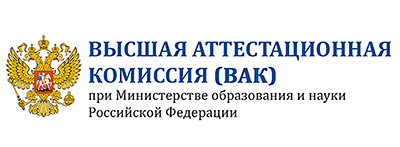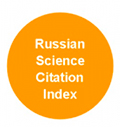Granting citizenship to persons living abroad: Russian policy and international experience
Abstract
The article discusses issues regarding the granting of Russian citizenship to persons living abroad. In the context of international experience, the Russian practice is one of the most large-scale and is showing a tendency to expand. Granting political rights to persons not living in the country of citizenship brings certain risks of influencing the political processes in the country itself. Economic guarantees for the new citizens are provided at the expense of the working population of this country and its other resources, while the new citizens do not participate in the formation of social funds. The authors conclude that the recent decisions to simplify the acquisition of Russian citizenship by residents of the South-Eastern regions of Ukraine (without the requirement to move to Russia) could potentially have tangible economic and political consequences for the population of Russia that are still difficult to predict. The world’s experience of the policy of interaction with “compatriots" and the Diaspora is ambiguous. It shows that countries granting citizenship or giving preferences to compatriots living abroad do not use citizenship as the only tool. They implement a system of statuses, granting some rights and limiting others, and setting a time frame for such programs. The authors conclude that at present the approaches to granting Russian citizenship to persons living outside Russia need to be revised, because the continuing practice and its scale do not fully meet the interests of the Russian population.
Downloads
References
Aksenov A.B. (2011). Sovremennyye tendentsii v mezhdunarodno-pravovom regulirovanii voprosov grazhdanstva v svyazi s pravopreyemstvom gosudarstv [Current trends in the international legal regulation of citizenship]. Moscow: Rossiyskaya akademiya pravosudiya. (In Russ.).
Bauböck R. (Ed.) (2006b). Acquisition and Loss of Nationality. Policies and Trends in 15 European States. Vol. 2. Country Analyses. Amsterdam: Amsterdam University Press.
Bauböck R. et al. (Eds.) (2006a). Acquisition and Loss of Nationality. Policies and Trends in 15 European States. Vol. 1. Comparative Analyses. Amsterdam: Amsterdam University Press.
Chiarmonte A. (2008). How Prodi’s Unione won by a handful of votes. In J.L. Newell (Ed.), The Italian general election of 2006. Romano Prodi’s victory (pp. 203-222). Manchester and New York: Manchester University Press.
Chudinovskikh O.S. (2014). Policies and trends in acquiring citizenship of the Russian Federation in 1992-2013. Demographic Review, 1(3), 65-126. (In Russ.). DOI: 10.17323/demreview.v1i3.1810
Chudinovskikh O.S. (2018). Statistics on Citizenship Acquisition as a Reflection of the Peculiarities of the Russian Migration Policy. Voprosy statistiki, 25(9), 3-26. (In Russ.). URL: https://voprstat.elpub.ru/jour/article/view/751?locale=ru_RU
Dumbrava C. (2019). The ethno-demographic impact of co-ethnic citizenship in Central and Eastern Europe. Journal of Ethnic and Migration Studies, 45(6), 897-916. URL: https://www.tandfonline.com/doi/full/10.1080/1369183X.2018.1440490
Dumbrava C. (2014). Nationality, Citizenship and Ethno-Cultural Belonging: Preferential Membership Policies in Europe. Houndmills, Basingstoke, Hampshire; New York: Palgrave Macmillan. URL: http://hdl.handle.net/1814/34661
Faist T. (Ed.) (2007). Dual Citizenship in Europe: From Nationhood to Social integration. Aldershot: Ashgate.
Faist T., Gerdes J. (2008). Dual Citizenship in an Age of Mobility. Washington. DC: Migration Policy Institute. URL: https://www.migrationpolicy.org/research/dual-citizenship-age-mobility
González Enríquez С. (2014). The price of Spanish and European citizenship. Royal Institute Elcano. ARI 4/2014 - 3/2/2014. URL: https://www.files.ethz.ch/isn/176641/ARI4-2014_Gonzalez_Enriquez_price_spanish_and_european_citizenship.pdf
Harpaz Y., Herzog B. (2018). Report on Citizenship Law: Israel. RSCAS/GLOBALCIT-CR 2018/2. European University Institute. Badia Fiesolana, San Domenico di Fiesole (FI), Italy. URL: https://cadmus.eui.eu/bitstream/handle/1814/56024/RSCAS_GLOBALCIT_CR_2018_02.pdf?sequence=1&isAllowed=y
Iordachi C. (2009). Romanian Citizenship Offer to Moldovans: Exaggerated Fears in the European Union. EUDO Citizenship Press Release. URL: https://www.eui.eu/Projects/EUDO/Documents/05-11-EUDO-romania.pdf
Iordachi C. (2010). Report on Romania. Country Report. RSCAS/EUDO-CIT-CR-2010/20. Badia Fiesolana, San Domenico di Fiesole (FI), Italy. URL: http://eudo-citizenship.eu/docs/CountryReports/Romania.pdf
Iwanski T. (2011). Ukraine – Romania: a sustained deadlock. Centre for Eastern Studies. OSW Commentary. 68. URL: https://www.osw.waw.pl/sites/default/files/commentary_68.pdf
Kalm S. (2013). Diaspora Strategies as Technologies of Citizenship. Global Society, 27(3), 379-397. DOI: 10.1080/13600826.2013.790787
Lohr E. (2012). Russian Citizenship. From Empire to Soviet Union. Harvard University Press. Cambridge, Massachusetts, and London, England.
Low C.C. (2018). MyOverseasVote: liberalism and extraterritorial citizenship. Citizenship Studies, 22(7), 745-768. DOI: 10.1080/13621025.2018.1508416.
Monostori J., Őri P., Spéder Zs. (Eds.) (2015). Demographic Portrait of Hungary 2015. Budapest: Hungarian Demographic Research Institute. URL: http://demografia.hu/en/publicationsonline/index.php/demographicportrait/issue/view/326
Nagashima T. (2017). Russia’s Passportization Policy toward Unrecognized Republics. Problems of Post-Communism. doi: 10.1080/10758216.2017.1388182
Pension Fund of the Russian Federation (2017). Godovoy otchet za 2017 g. [Annual Report 2017]. (In Russ.). URL: http://www.pfrf.ru/files/id/press_center/godovoi_otchet/annual_report_2017_1.pdf
Pension Fund of the Russian Federation (2018). Godovoy otchet za 2018 g. [Annual Report 2018]. (In Russ.). URL: http://www.pfrf.ru/press_center/annual_report/
Pogonyi S. (2013). Naturalisation Procedures for Immigrants: Hungary. Naturalisation Procedures Report. RSCAS/EUDO-CIT-NP 2013/12. Badia Fiesolana, San Domenico di Fiesole (FI), Italy. URL: https://core.ac.uk/download/pdf/45683860.pdf
Pogonyi S. (2015). Transborder Kin-minority as Symbolic Resource in Hungary. Journal on Ethnopolitics and Minority Issues in Europe, 14(3), 73–98. URL: https://www.ecmi.de/fileadmin/downloads/publications/JEMIE/2015/Pogonyi.pdf
Pogonyi S., Kovács M., Körtvélyesi Z. (2010). The Politics of External Kin-state Citizenship in East Central Europe. Comparative Report. RSCAS/EUDO-CIT-Comp. 2010/6. Badia Fiesolana, San Domenico di Fiesole (FI), Italy. URL: http://eudo-citizenship.eu/docs/ECEcompreport.pdf
Pogonyi S. (2019). The Passport as Means of Identity Management: Making and Unmaking Ethnic Boundaries Through Citizenship. Journal of Ethnic and Migration Studies, 45(6), 975– 993. URL: https://www.tandfonline.com/doi/full/10.1080/1369183X.2018.1440493
Sánchez C.A., Cuesta S.G. (2017). Migration and Spanish Citizenship Abroad: Recent Scenarios from the Cuban Context. Mediterranean Journal of Social Sciences, 8(3), 91-98. URL: https://www.mcser.org/journal/index.php/mjss/article/view/9941/0
Statistics Poland (2018). Demographic Yearbook of Poland 2018. Warsaw. URL: https://stat.gov.pl/en/topics/statistical-yearbooks/statistical-yearbooks/demographic-yearbook-of-poland-2018,3,12.html
Varga A. (2019). The Right to Vote of Romanian Citizens Living Abroad. Minority Studies, 15, 187-198. URL: https://www.researchgate.net/publication/333088815_The_Right_to_Vote_of_Romanian_Citizens_Living_Abroad






















